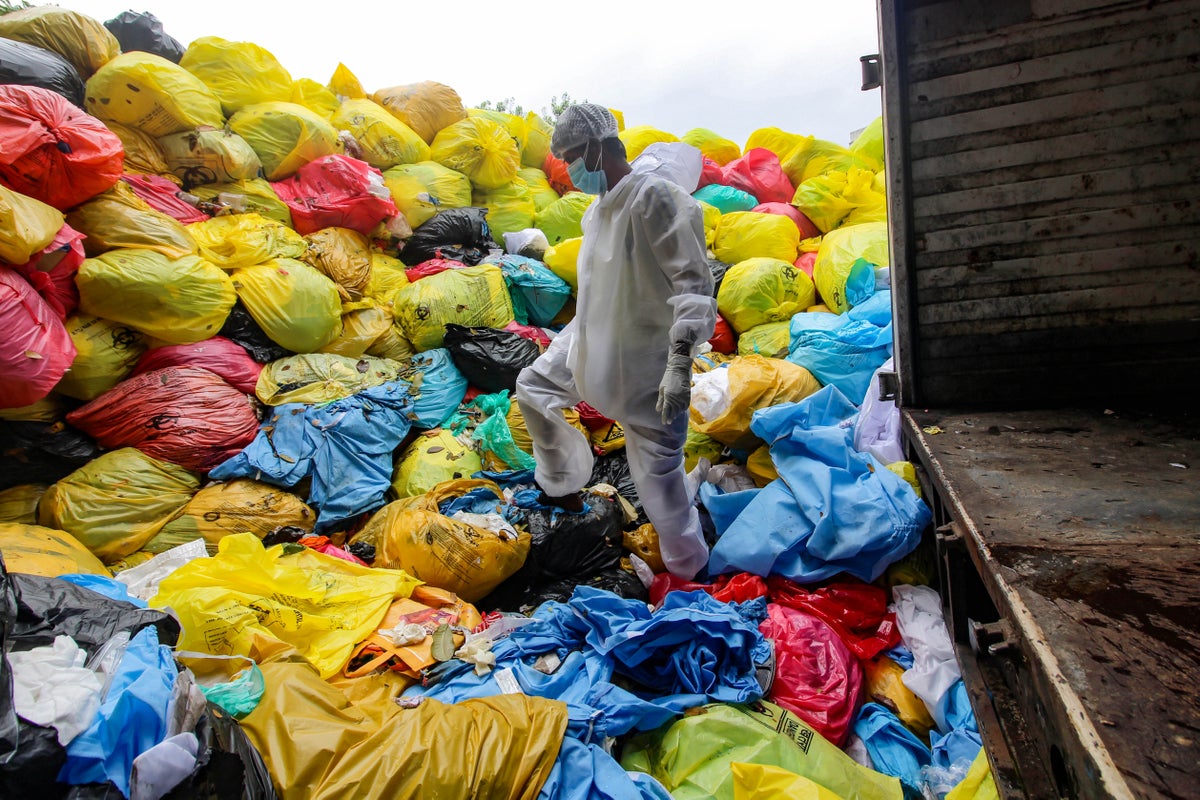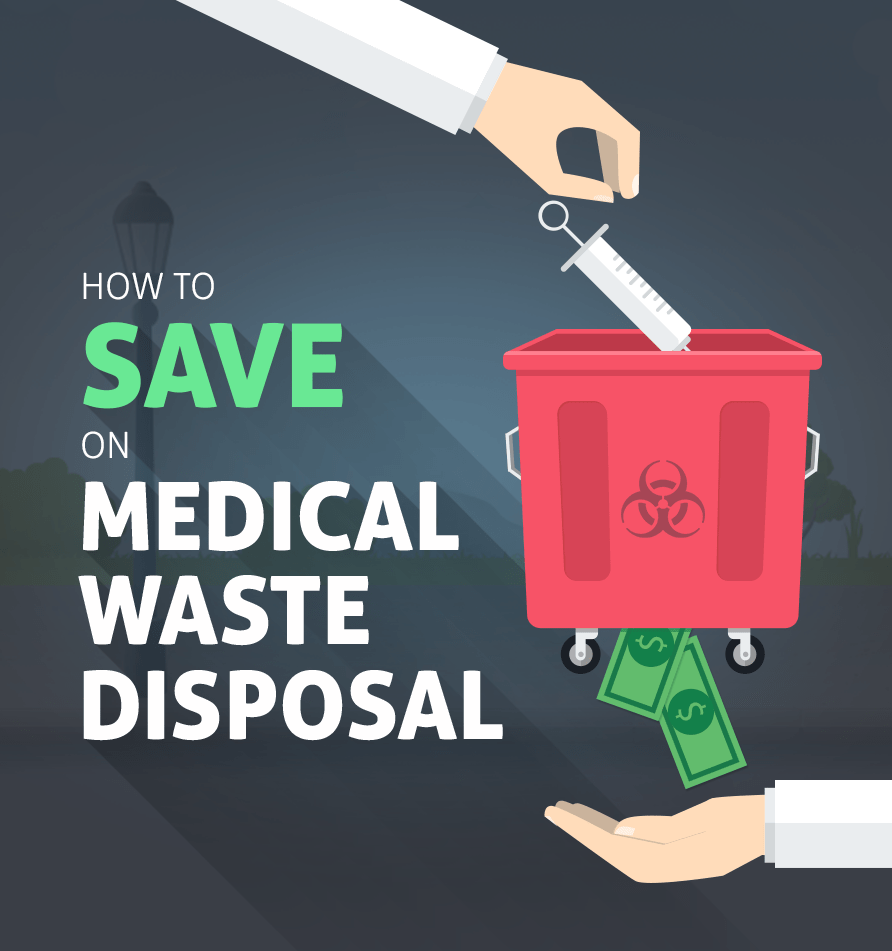Comprehensive Medical Waste Disposal Providers: Ensuring a Healthy And Balanced Setting
Wiki Article
Making Sure Safe Handling and Disposal of Medical Waste
Making sure safe handling and disposal of clinical waste is of vital relevance in medical care setups. Inappropriate administration of clinical waste can posture considerable risks to the atmosphere, public health and wellness, and healthcare employees. This necessitates adherence to stringent guidelines and methods for its risk-free handling and disposal. In this introduction, we will certainly explore the relevance of appropriate clinical waste management, the risks connected with incorrect handling and disposal, in addition to the guidelines and techniques that can be applied to guarantee its safe disposal. In addition, we will review the relevance of training and education for healthcare experts in order to preserve a risk-free and tidy medical care atmosphere. By following these techniques, we can properly mitigate the prospective risks related to medical waste.Value of Correct Clinical Waste Management
Proper clinical waste management is of utmost significance in ensuring the security and wellness of healthcare experts, people, and the basic public. Clinical waste describes any waste created by health care facilities throughout the diagnosis, therapy, or immunization of humans or animals. This waste can pose severe health risks otherwise taken care of and dealt with effectively.
One of the key reasons correct clinical waste monitoring is essential is to stop the spread of transmittable diseases. Clinical waste, such as utilized needles, infected dressings, and biological materials, can carry unsafe pathogens. If not dealt with and disposed of appropriately, these microorganisms can be sent to health care employees, clients, waste trainers, and also the basic public, bring about the potential break out of conditions.
Additionally, proper clinical waste administration aids secure the setting - medical waste disposal. Clinical waste contains unsafe products, consisting of chemicals, drugs, and contaminated compounds. When not managed suitably, these substances can infect soil, water bodies, and the air, presenting a considerable hazard to environments and public wellness
Moreover, effective clinical waste administration ensures conformity with international standards and local laws. Federal governments and regulative bodies have established guidelines and protocols to guarantee the secure handling, storage space, transportation, and disposal of clinical waste. Abiding by these laws is crucial to prevent lawful effects and preserve the track record and trustworthiness of medical care centers.
Threats of Improper Handling and Disposal

Individuals can additionally be revealed to these contagious conditions if medical waste is not appropriately thrown away. As an example, if polluted needles or other sharps are not taken care of in designated puncture-proof containers, they might mistakenly prick people, causing prospective infections. In addition, if clinical waste is not segregated properly, there is a threat of cross-contamination between various kinds of waste, further increasing the possibilities of condition transmission.
Inappropriate disposal of clinical waste can also have damaging impacts on the environment and the public. If medical waste is not dealt with and dealt with appropriately, it can infect water resources, soil, and air, bring about the spread of contaminants and conditions. This can have long-lasting consequences on ecological communities and public wellness.
Guidelines for Safe Handling of Medical Waste
Applying efficient protocols for the secure handling of clinical waste is crucial in making sure the security of medical care specialists, clients, and the general public. These guidelines are critical in minimizing the threats connected with the handling and disposal of clinical waste, such as infections, injuries, and environmental contamination.Primarily, healthcare centers must establish an extensive waste administration plan that complies with neighborhood, nationwide, and global policies. This plan ought to include clear guidelines on waste segregation, packaging, transport, labeling, and storage space. It is essential to separate various sorts of waste, such as sharps, infectious products, pharmaceuticals, and non-hazardous waste, to stop cross-contamination and promote risk-free disposal.
In addition, health care employees have to obtain detailed training on correct waste handling strategies. They ought to be informed on the prospective risks of medical waste, the appropriate use of personal safety tools (PPE), and the appropriate procedures for taking care of, delivering, and taking care of various kinds of waste.
In addition, health care centers need to routinely keep an eye on and audit their check here waste monitoring methods to ensure compliance with guidelines. This includes conducting normal evaluations, examining waste handling treatments, and supplying comments and training to employee.
Reliable Methods for Garbage Disposal
To guarantee the secure handling and disposal of clinical waste, it is necessary to utilize reliable approaches for waste disposal. Clinical waste can position considerable dangers to public health and the setting otherwise handled and disposed of appropriately. Consequently, healthcare facilities and waste monitoring companies must apply appropriate approaches to reduce these risks.One effective technique for garbage disposal is segregation. It entails dividing various sorts of medical waste based upon their features. Partition permits the appropriate treatment and disposal of each waste group, decreasing the capacity for contamination or harm. Health care centers need to provide clear standards and training to team member on just how to set apart waste correctly.

Furthermore, health care centers ought to collaborate with licensed waste management companies to ensure proper disposal of medical waste. These companies have the knowledge and devices called for to safely deal with and get rid of of clinical waste in compliance with laws and ideal practices.
Training and Education And Learning for Health Care Professionals
Medical care professionals play a critical duty in ensuring the safe handling and disposal of medical waste with thorough training and education. It is crucial for doctor to have a deep understanding of the prospective dangers related to clinical waste and the appropriate procedures for its administration. By obtaining correct training, medical care specialists can lessen the possible transmission of infectious conditions, prevent environmental contamination, and secure both themselves and the public.
Additionally, training programs must highlight making use of individual safety tools (PPE) and appropriate hand health techniques when handling clinical waste. medical waste removal service. Medical care experts ought to know exactly how to appropriately make use of and dispose of PPE to safeguard themselves from potential exposure to hazardous materials. They should likewise be informed on the relevance of normal handwashing and the correct use hand sanitizers to decrease the spread of contagious illness
Continuing education and learning and normal updates on clinical waste administration practices are important for medical care professionals. As guidelines and standards advance, it is vital to keep doctor educated about any changes in protocols and ideal practices. This will certainly ensure that they remain current and keep a high requirement of safety in managing and disposing of clinical waste.
Conclusion
Finally, appropriate handling and disposal of clinical waste is important to guarantee the safety and security of healthcare professionals, patients, and the setting. Disregarding to comply with guidelines and guidelines can cause various dangers and hazards. Applying effective methods for waste disposal and offering ideal training and education and learning for health care experts are crucial in keeping a risk-free health care environment. By adhering to these techniques, we can reduce the possible risks connected with medical waste.Clinical waste refers to any type of waste generated by health care facilities throughout the medical diagnosis, treatment, or booster shot of animals or human beings. If clinical waste is not segregated properly, there is a risk of cross-contamination in between various kinds of waste, more increasing the possibilities of condition transmission.
It is vital to separate different kinds of waste, such as sharps, infectious products, drugs, and non-hazardous waste, to prevent cross-contamination and promote secure disposal. WasteX Medical Waste Disposal.
To guarantee the risk-free handling and disposal of clinical waste, it is crucial to use effective approaches for waste disposal. Additionally, health care facilities ought to develop a routine waste collection and transport routine to prevent waste accumulation and reduce the risk of mishaps or contamination.
Report this wiki page